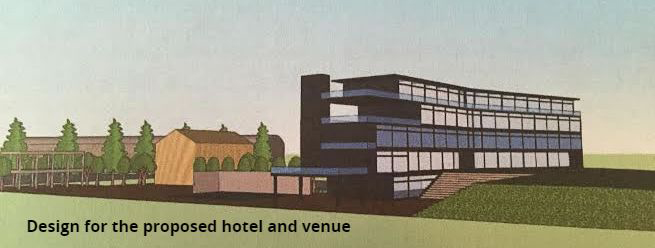5 Takeaways from the 8-Year DeeTour Battle
We are still celebrating the definitive win for Hood River residents that came with the state Land Use Board of Appeals’ (LUBA) unanimous decision to overturn the Hood River County Commission’s fourth extension of the DeeTour amphitheater development permit. Thrive’s victory in the appeal effectively ends the 8-year threat posed by this ill-conceived large-scale destination concert venue sited on the banks of the East Fork of the Hood River.
unanimous decision to overturn the Hood River County Commission’s fourth extension of the DeeTour amphitheater development permit. Thrive’s victory in the appeal effectively ends the 8-year threat posed by this ill-conceived large-scale destination concert venue sited on the banks of the East Fork of the Hood River.
At long last, Apollo Holdings, LLC has pulled their permits and the property is currently listed for sale. Here are 5 takeaways from the long road to victory:
1. Oregon’s Land Use System Strikes a Balance
Locating a massive hotel and concert venue outside of an urban growth boundary disrupts the balance that land use planning strives to sustain. Not only does it conflict with the surrounding rural lands, but it also places a dangerous strain on roads that were not designed for high volume traffic and disrupts nearby farms and communities.
“The upper valley has become a tourist destination in itself and the Dee highway is a main artery between Mount Hood and Hood River. The roads are already busier than they can safely handle, having a large resort or venue would create massive traffic jams and be hazardous to those of us who live, farm, or work here” – Dee Resident
Since 1973, Oregon’s land use system has been a tool for planned, smart growth. Cities and towns are designed and built to accommodate more intense uses (e.g. residential neighborhoods and commercial centers) and have the underlying road, public safety, and utility infrastructure to support them. Outside of an urban growth boundary, farm and forest lands prevail. These resource lands lack the infrastructure to accommodate the kind of uses that flourish inside cities and towns.
2. Perseverance
Land use planning and protecting rural lands from inappropriate development is not for the faint of heart. Victories take time and dedication. Securing this win took eight years, three trips to LUBA, nine appeals, and hundreds of comments from neighbors and community members.
It is thanks to the determination of local residents who continued to speak up, show up, share their testimony, and support the work of land use advocates that this controversial development was stopped.
3. Collaboration is Crucial
The collaboration between 1000 Friends of Oregon and Thrive Hood River made this victory possible. The combination of our local expertise, amplified by a statewide land use planning advocacy group ensured that deep-pocketed developers couldn’t bulldoze community opposition. This kind of collaboration also connects Oregonians throughout the state. Lessons learned by land use advocacy organizations connected through the 1000 Friends of Oregon Affiliate network in other parts of the state that faced similar development proposals were instrumental in our long path to victory. Being a part of a collaborative network of land use organizations makes land use planning more efficient and effective.
4. Important Legal Precedents Were Set
The LUBA decision to deny the extension of the permits has broader implications for limiting “zombie projects” in the Hood River Valley and beyond. Our legal work revealed that the County’s code didn’t have limits on the number of extensions an applicant is allowed. In response, the County Commission initiated a necessary code update. Instead of allowing potentially unlimited extensions, Hood River County recently amended their code so that permits last for four years with the possibility of an additional two-year extension under certain conditions.
5. Keep an Eye on The Big Picture
We’ve identified an important lens to evaluate development impacts on resource lands. Permit-stacking –the practice of applying for multiple different permits for a single project — is becoming more common. This unfortunate practice makes it hard for community members to understand and evaluate the full impact of a proposal. Over many years and project iterations, Apollo Holdings proposed a four-story hotel, concert amphitheater, 3,000 car parking lot, seasonal event site, conference venue, wedding site, and a festival-sized food cart pod. In reality, all of the things that Apollo Holdings attempted amounted to a destination resort. Oregon has laws governing destination resorts and rather than use those laws, the company opted for a piecemeal approach to avoid transparency. The piecemeal, permit-stacking approach requires groups like Thrive and 1000 Friends of Oregon to thoroughly evaluate every permit to ensure that the public really understands the scope and scale of what is being proposed in their community.
Thank You For your support!
These victories take significant financial resources. Members of 1000 Friends of Oregon and supporters of Thrive Hood River should take pride in knowing that their contributions sustained us through the eight years of community organizing and legal battles it took to win.